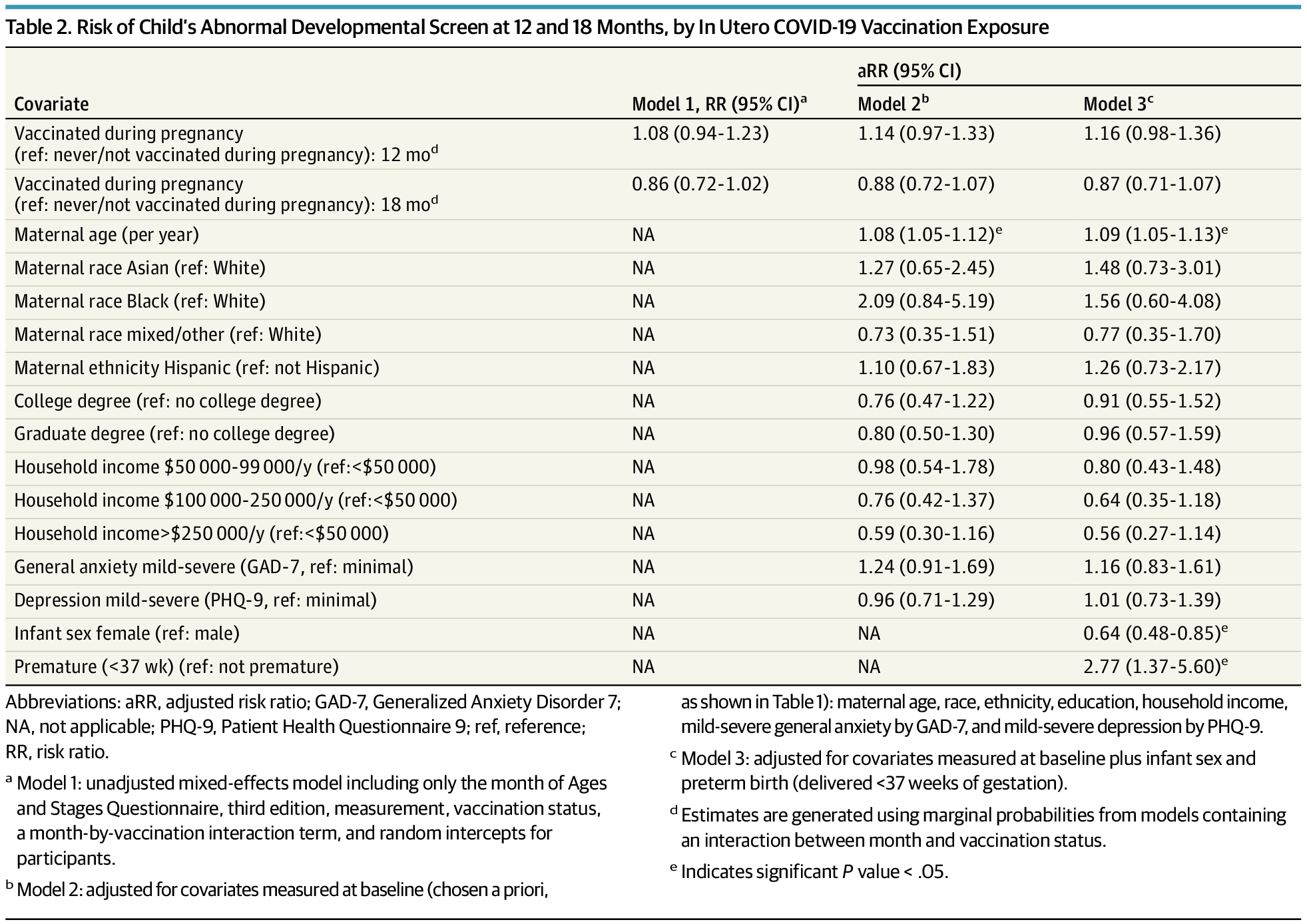There was concern about vaccines by pregnant women because American epidemiologists had spent decades promoting the belief that a glass of wine would mean fetal alcohol syndrome or that not buying organic food will mean worse grades for kids in school. An alarming number of anti-science activists had insisted that Big Pharma controlled the US Food and Drug Administration approval process since the 1990s. Pregnant women were therefore excluded from early randomized clinical trials of COVID-19 vaccines. Concerns were about miscarriage and preterm birth, which never happened, but then the goalposts moved to intellectual developmental delays, much like was brought up about MMR vaccines.

doi:10.1001/jamapediatrics.2023.5743
Authors used data from the Assessing the Safety of Pregnancy During the Coronavirus Pandemic (ASPIRE) prospective cohort, which enrolled pregnant 10 weeks or less) women online in all 50 states from May 2020 to August 2021. Mothers completed the Ages and Stages Questionnaire, third edition when their children were 12 and 18 months. The survey is designed to show a developmental delay in communication, gross motor, fine motor, problem solving, and social skills.
Developmental delay was reported in at least 1 domain at 12 months by 30.6 percent among kids of moms vacccinated and 28.2 percent by moms who hadn't gotten the vaccine while pregnant. In such small numbers that is just statistical wobble, meaning the vaccine during pregnancy made no difference in children. Instead of a meaningful difference, they found reduced risk ratios of abnormal ASQ-3 screens at 18 months vs 12 months among all groups.
Confounders are that mothers evaluated their own children and the authors tried to control for income, race, ethnicity, education, and depression, They did control for age.
With vaccines in their fourth decade of being controversial to one political party or another, longer-term findings will continue to be published.





Comments